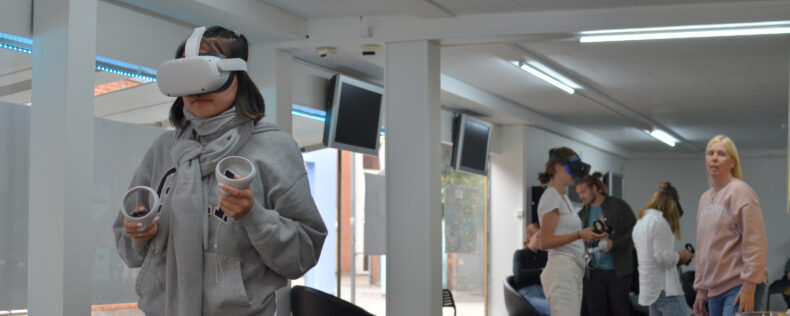In the Games & Society Lab at Uppsala University, Joshua Juvrud takes an individualistic approach using psychological methods to understand better how different individuals (with different personalities, traits, and experiences) interact with various digital media, including: social media, digital apps, video game mechanics, youtube and switch streaming, and other digital tools. We also look at how, in turn, individuals are effected by these digital experiences. Research questions and findings are therefore highly relevant for both developers of games and digital media, as well as psychologists, sociologists, and health scientists.
Research topics may include:
- Learning. The information that influences attention and subsequent learning may include other sensory inputs, cognitive processes, emotion or emotional responses, or prior experiences and future expectations. Understanding these influences on attention may help us to, in turn, be able to predict, based on eye movements, in what ways the player is experiencing a game. By associating eye-gaze patterns with measures of player expertise, skill, and enjoyment, we can use eye-gaze to understand and predict player experiences. For example, how do skills developed as a musician affect learning and performance in a game. This research is informative for understanding not only learning a game and its mechanics, but also how that learning transfers to new games, new contexts, and even to learning situations outside of the game (such as motor ability).
- Social perception. Using eye-tracking methodology, we measure fixations, gaze direction, scanning patterns, and pupil dilation in order to understand individual differences in how people perceive various components of art and design in digital media, including UI, characters, and environments. This is extremely informative for design, but also for understanding how individuals are learning and responding to digital media. With this knowledge, we can improve design in order to assist in positive experiences for individuals.
- Social interaction. A large portion of digital media is highly social, including social media, streaming, and online interactions. Using psychophysiological measures (eye-tracking, GSR, facial emotion analysis) combined with other measures, we look at the various processes involved in social interactions in digital media, such as empathy, prosocial and altruistic behavior, emotion processing, emotional arousal; as well as examining more recent phenomenon such as parasocial relationships, anonymity, and toxicity.
Relevant Publications:
- Juvrud, J, Meyers, L., & Nyström, P. (2023). People overlook subtractive changes differently depending on age, culture, and task. Nature Scientific Reports. https://doi.org/10.1038/s41598-024-51549-y
- Zhang, J. & Juvrud, J. (2023) Gender expression and gender identity in virtual reality: Avatars, role-adoption, and social interaction in VRChat. Frontiers in Virtual Reality. https://urn.kb.se/resolve?urn=urn:nbn:se:uu:diva-504082
- Juvrud, J., Ansgariusson, G., Selleby, P. & Johansson, M. (2021). Game or watch: The effect of interactivity on arousal and engagement in video game media. IEEE Transactions on Games. https://doi.org/10.1109/TG.2021.3073084
Related Discipline(s)
This course would also be of interest to the following discipline(s):Media Studies

